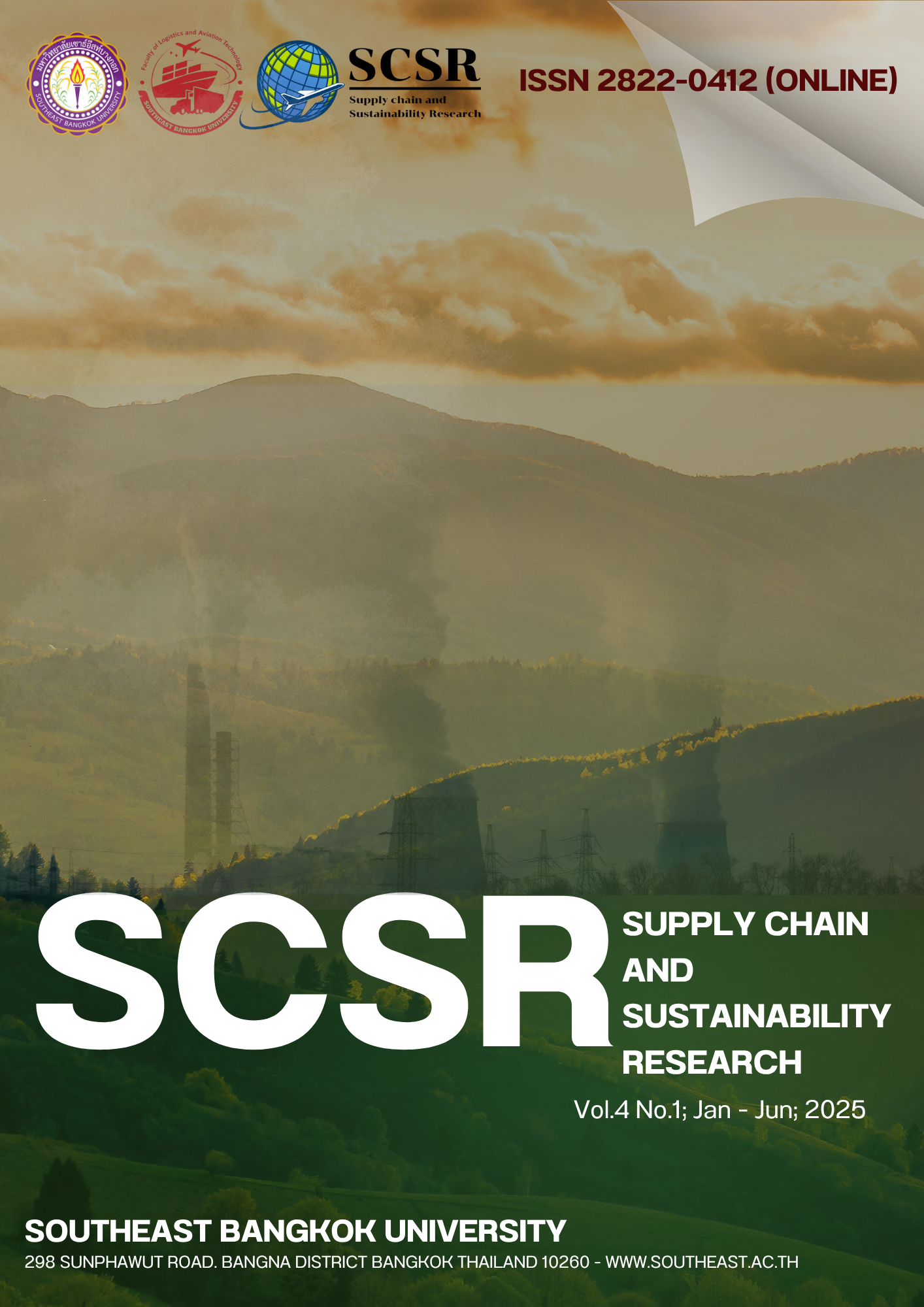EMPOWERING DIGITAL FUTURES: YOUTH-LED INITIATIVES FOR INCLUSIVE DIGITAL TRANSFORMATION IN BANGKOK
Main Article Content
บทคัดย่อ
This paper presents a youth-led perspective on inclusive digital transformation in Bangkok, drawing on real-world insights gathered through participatory discussions, expert interviews, and collaborative activities at the 2025 Bangkok Global Youth Leadership Forum. As group leader of the Digital Transformation team, the author synthesises findings from case studies on Thailand's 5G infrastructure rollout, the proposed development of a unified digital government services platform, and initiatives to support small and medium-sized enterprises (SMEs) in embracing digital tools. Using a qualitative methodology grounded in group reflections, industry dialogues, and hackathon collaboration, this research explores how youth-driven innovations and multi-sector partnerships can address persistent digital inequalities and promote equitable access to technology. The study contributes to scholarship on digital development by highlighting the importance of co-creation, community engagement, and localised solutions in national digital transformation agendas.
Article Details

อนุญาตภายใต้เงื่อนไข Creative Commons Attribution-NonCommercial-NoDerivatives 4.0 International License.
บทความนี้ได้รับการเผยแพร่ภายใต้สัญญาอนุญาต Creative Commons Attribution-NonCommercial-NoDerivatives 4.0 International (CC BY-NC-ND 4.0) ซึ่งอนุญาตให้ผู้อื่นสามารถแชร์บทความได้โดยให้เครดิตผู้เขียนและห้ามนำไปใช้เพื่อการค้าหรือดัดแปลง หากต้องการใช้งานซ้ำในลักษณะอื่น ๆ หรือการเผยแพร่ซ้ำ จำเป็นต้องได้รับอนุญาตจากวารสารเอกสารอ้างอิง
Arslan, H., Ahmad, S., & Rehman, S. (2021). Digital empowerment through youth-led initiatives in Pakistan: A case study of ICT training centres. Journal of Youth Studies, 24(6), 755–771.
ASEAN Foundation. (2022). ASEAN Youth Digital Summit Report. Retrieved from https://www.aseanfoundation.org
Deloitte Thailand. (2023). The Thailand Digital Transformation Survey Report. Retrieved from https://www2.deloitte.com/th/en/pages/technology/articles/the-thailand-digital-transformation-survey-report.html
Hisrich, R. D., Peter, M. P., & Shepherd, D. A. (2020). Entrepreneurship (11th ed.). New York: McGraw-Hill.
Lim, S., & Lee, Y. H. (2022). Youth digital inclusion initiatives in Southeast Asia: Lessons from Malaysia and Indonesia. Asian Journal of Communication, 32(3), 245–260.
Lozic, J., & Čiković, K. F. (2024). Digital transformation: The fundamental concept of transformation of business activities. Proceedings of the 107th International Scientific Conference on Economic and Social Development, 326–337.
McKinsey & Company. (2024). What is digital transformation? Retrieved from https://www.mckinsey.com/featured-insights/mckinsey-explainers/what-is-digital-transformation
Ministry of Digital Economy and Society (MDES), Thailand. (2022). Thailand Digital Economy and Society Development Plan.
National Broadcasting and Telecommunications Commission (NBTC). (2020). 5G Spectrum Auction Report.
Novack, R. A., Gibson, B. J., Suzuki, Y., & Coyle, J. J. (2018). Transportation: A Global Supply Chain Perspective (9th ed.). Singapore: Cengage.
Thailand Development Research Institute (TDRI). (2023). Bridging Thailand’s Digital Divide: Participation and Policy Challenges. Bangkok: TDRI.
UNESCO. (2022). Reimagining our futures together: A new social contract for education in the digital age. Paris: United Nations Educational, Scientific and Cultural Organization.
Wang, Y., & Pettit, S. (2021). E-Logistics (2nd ed.). U.S.A.: Kogan Page.
World Economic Forum. (2023). Accelerating Digital Inclusion for Equitable Development. Geneva: World Economic Forum.
YouthConnekt Africa. (2021). Empowering Young Africans through Innovation and Digital Transformation. Kigali: UNDP Africa.


